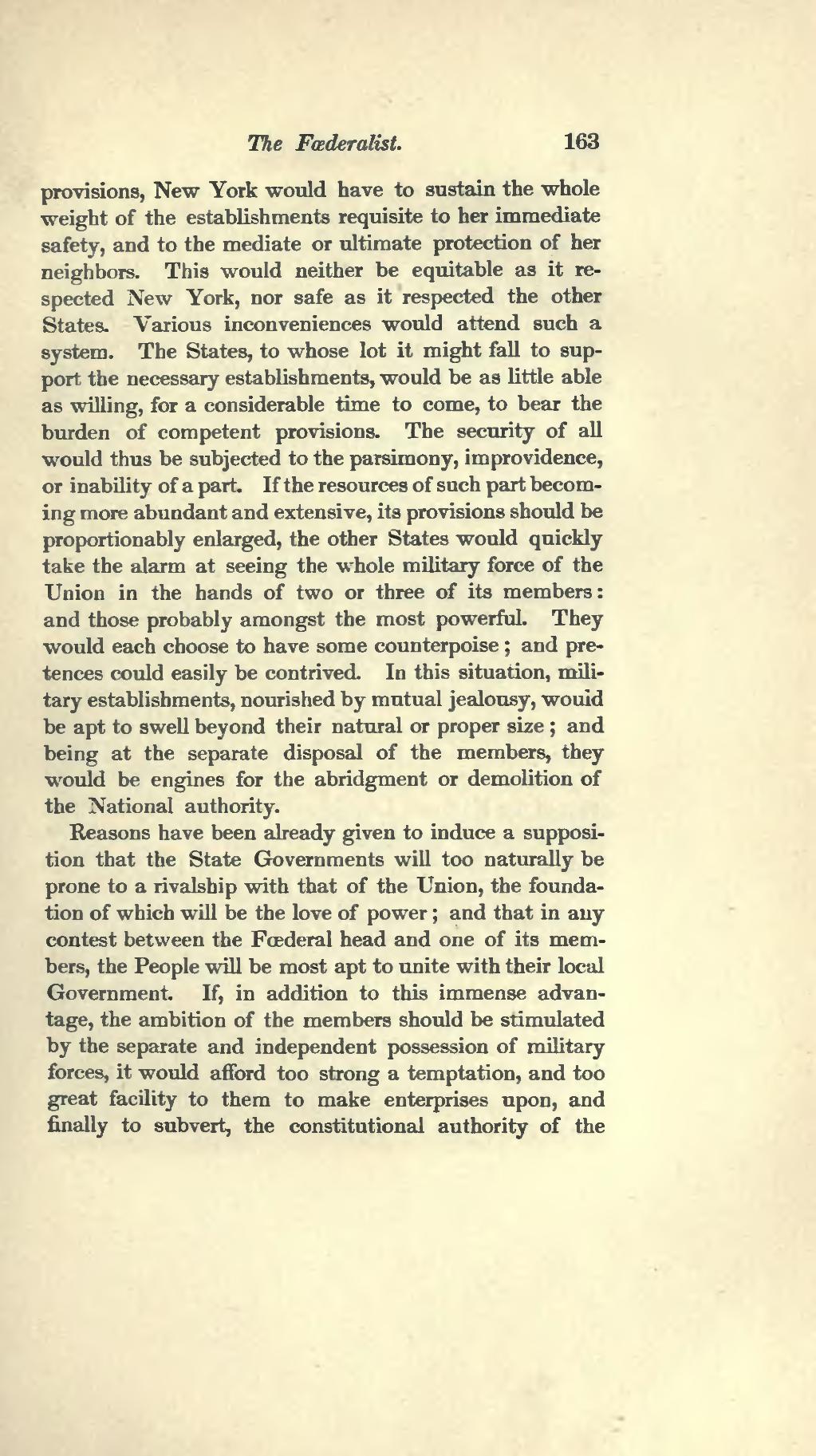provisions, New York would have to sustain the whole weight of the establishments requisite to her immediate safety, and to the mediate or ultimate protection of her neighbors. This would neither be equitable as it respected New York, nor safe as it respected the other States. Various inconveniences would attend such a system. The States, to whose lot it might fall to support the necessary establishments, would be as little able as willing, for a considerable time to come, to bear the burden of competent provisions. The security of all would thus be subjected to the parsimony, improvidence, or inability of a part. If the resources of such part becoming more abundant and extensive, its provisions should be proportionally enlarged, the other States would quickly take the alarm at seeing the whole military force of the Union in the hands of two or three of its members: and those probably amongst the most powerful. They would each choose to have some counterpoise; and pretences could easily be contrived. In this situation, military establishments, nourished by mutual jealousy, would be apt to swell beyond their natural or proper size; and being at the separate disposal of the members, they would be engines for the abridgment or demolition of the National authority.
Reasons have been already given to induce a supposition that the State Governments will too naturally be prone to a rivalship with that of the Union, the foundation of which will be the love of power; and that in any contest between the Fœderal head and one of its members, the People will be most apt to unite with their local Government. If, in addition to this immense advantage, the ambition of the members should be stimulated by the separate and independent possession of military forces, it would afford too strong a temptation, and too great facility to them to make enterprises upon, and finally to subvert, the constitutional authority of the
